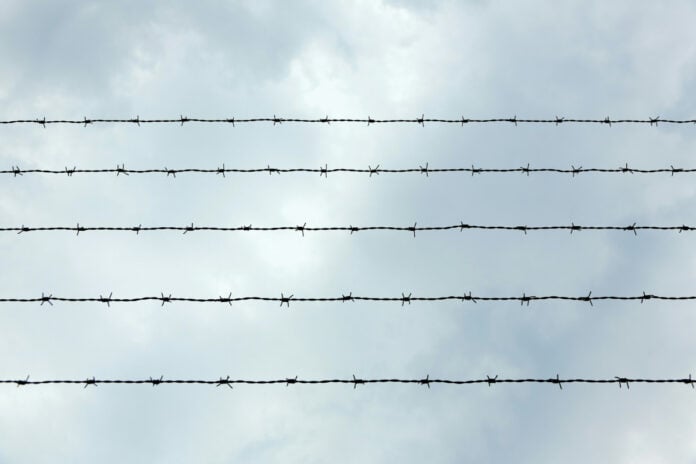The Lansing Journal has partnered with the freshman class at Unity Christian Academy for three consecutive years to host a student editorial contest. Each freshman student wrote an editorial about something they care about, and submitted it to The Lansing Journal. Publisher Melanie Jongsma and Managing Editor Josh Bootsma read the editorials and picked five winners based on criteria including: making a claim, persuasion and analysis, evidence, local impact, and language and voice. This is the second editorial to be published this year, and subsequent winners will be published daily. Earlier winners are linked below.

By Heaven Magee
“You’re under arrest.”
Those words changed Fransisco Benitez‘s life forever. He knew he was innocent, all the evidence pointed elsewhere, but no one believed him. The courts wanted someone to blame for the horrific murder of two teenagers, and he was in the same city as the crime. Benitez spent 34 years of his life in jail until witnesses came forward with the truth.
Many people in this country suffer the same fate as Benitez every day. They’re arrested for crimes they didn’t commit while the real criminals walk free. This problem needs to be addressed and rectified. Research shows that the main causes of wrongful convictions are false eyewitnesses and faulty forensic evidence, according to Colorado.edu. If time had been spent by all parties double-checking sources of evidence, maybe these people wouldn’t have been imprisoned.
Chicagoland convictions
Surprise surprise, one of the places wrongful convictions are most prominent is right here in the Chicagoland area. In fact, according to Heather Cherone, a political reporter for WTTW news, Chicago has been the nation’s leader in the number of wrongful convictions for five years in a row.
Cook County had 124 exonerations (the action of officially absolving someone from blame; vindication) in 2022 alone.
Nationwide, 3,478 exonerations have occurred in the United States from 1989 through the end of 2023, according to a report from the National Registry of Exonerations.
Lives changed forever
On average, two people a day are wrongfully convicted in America. That’s two families daily that are crying for someone. That’s two kids who won’t have their parents to tuck them in at night.
Two lives that are changed forever.
For the fortunate few who make it out of prison with the help of organizations such as the Innocence Project, an organization that helps free the innocent, life won’t be the same. Even though they were found innocent in court, they will be guilty in the eyes of society. They will go back to their hometowns and the neighbors they know so well will turn on them. Many lose their jobs and are scorned by society.
This issue reaches beyond the walls of a prison cell. This issue affects everyone who was involved in the crime, including the victims.
According to the National Institute of Justice, “When a wrongfully convicted individual is exonerated, the original crime victim may experience feelings of guilt, fear, helplessness, devastation and depression. For some victims, the impact of the wrongful conviction may be comparable to — or even worse than — that of their original victimization.”
People who have survived horrific crimes have to go through the fact that their perpetrator is still free to hurt others. These victims already have to live with their shame and fear of the original crime; they don’t need to worry about looking over their shoulders for the people who hurt them.
Death row
Even more seriously, these cases can escalate into situations where innocent people end up on death row. At least 189 people who’ve been wrongly convicted and sentenced to death have been exonerated since 1973 in America.
Death row is a place where people sit awaiting their death, knowing that dark day is approaching. They know that they’re innocent, they know they don’t deserve to die, but we are killing them anyway. There are very few experiences on this earth that are more terrifying.
“Getting better” isn’t good enough
You might say well, we’re getting better. After all, the number of wrongly imprisoned is decreasing every year by retrying cases and bringing the real culprits to justice. Although this is true, no one wants to talk about the heart-breaking truth of the aftermath. These innocent people often spend years behind bars before they are exonerated and this affects their mental health. The sad truth is that lots of these innocent people begin lives of crime or start doing drugs to heal the pain of their false accusations. The truth is that America’s justice system is responsible for that.
An old saying goes, “knowing better is doing better.” As Americans and residents of the Chicago area, we need to enhance ourselves. Aren’t we supposed to be the land of the free? We should act like it and not take that freedom from those who don’t deserve it.


